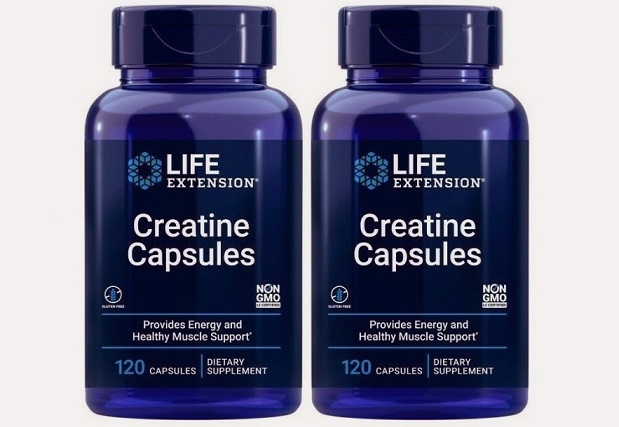Creatine Shows Promise in Treating Post Viral Fatigue Syndrome Especially in Long COVID Patients
Nikhil Prasad Fact checked by:Thailand Medical News Team Jun 16, 2025 8 months, 1 week, 1 day, 23 hours, 14 minutes ago
Thailand Medical News: A growing number of people suffering from long-lasting exhaustion and cognitive issues after recovering from viral infections like COVID-19 may soon have a new and surprisingly simple tool for relief—creatine. Researchers from the University of Agder in Norway, the University of Novi Sad in Serbia, the University of Pécs in Hungary, the University of Regina in Canada, and McMaster Children’s Hospital in Canada have found that creatine, a naturally occurring compound best known for enhancing athletic performance, may offer therapeutic benefits for individuals with post-viral fatigue syndrome (PVFS), especially those experiencing post-COVID fatigue.
 Creatine Shows Promise in Treating Post Viral Fatigue Syndrome Especially in Long COVID Patients
Creatine Shows Promise in Treating Post Viral Fatigue Syndrome Especially in Long COVID Patients
PVFS is a neurological condition officially recognized by the World Health Organization (ICD-11 code: 8E49). It often follows viral infections and causes persistent tiredness, cognitive problems like “brain fog,” and a worsening of symptoms after even mild exertion. Many people struggle with this condition without knowing it has a name. This
Thailand Medical News report dives into the latest research showing how creatine might help.
The Mysterious Nature of PVFS
The condition, which shares similarities with chronic fatigue syndrome (CFS) and myalgic encephalomyelitis (ME), is thought to be triggered by viruses such as Epstein-Barr, influenza, and most notably SARS-CoV-2—the virus behind COVID-19. It is marked by an ongoing struggle with low energy levels, disrupted sleep, and mental fatigue. Scientists believe that the root of the problem lies in the body’s energy-producing systems, specifically the mitochondria, which become less efficient after a viral attack.
Recent studies show that people with PVFS tend to have low levels of creatine in key areas like the brain and muscles. This is important because creatine helps produce ATP, the molecule our cells use for energy. When creatine is low, energy levels drop, leading to chronic fatigue. One study found significant reductions in creatine levels in the anterior cingulate cortex—a brain region linked to decision-making and emotion—in PVFS patients. Others showed similar reductions in skeletal muscles and deeper parts of the brain, especially in people recovering from COVID-19.
How Creatine Might Help
While creatine has been a staple supplement in the fitness world, its role in helping with fatigue syndromes is only just emerging. According to the researchers, supplementing with creatine could restore energy balance in the brain and muscles, improving symptoms of PVFS. Several small clinical trials have already been conducted. In one six-month study, patients with post-COVID fatigue who took 4 grams of creatine monohydrate daily experienced better brain and muscle energy levels, as well as improved mood and symptom relief. In another trial, combining creatine with breathing exercises helped reduce breathing issues and mental fog.
<
br />
In some cases, patients who took up to 16 grams of creatine daily showed improvements in fatigue, reaction time, and physical strength. Despite some studies showing minimal benefit—possibly due to small sample sizes or inconsistent dosing—the overall trend is promising. Some researchers are even exploring non-creatine supplements like synbiotics (probiotics and prebiotics) that appear to raise creatine levels in the brain and improve symptoms.
Why This Matters and What Comes Next
At the moment, tests to measure creatine imbalances aren’t widely available or used in clinical settings. This is mainly because PVFS is still poorly understood, and standard diagnostic tools are lacking. But as more studies confirm the link between creatine levels and fatigue symptoms, it’s likely that doctors will start paying more attention.
Researchers now want to run larger, better-designed trials to figure out the best dosages and treatment durations. They’re also exploring different creatine types, delivery methods (like food or patches), and how to combine creatine with other therapies like cognitive training or sleep support.
Conclusion
The discovery of creatine’s potential in treating post-viral fatigue syndrome opens a new and hopeful chapter for millions still struggling with long-term exhaustion after viral infections. Unlike many complicated or expensive treatments, creatine is widely available, relatively inexpensive, and has a strong safety profile. However, much more research is needed to fine-tune its use and understand which patients will benefit the most. If proven effective in larger trials, creatine could become a simple but powerful weapon in the battle against the life-altering symptoms of PVFS, especially in those suffering from long COVID. By restoring balance to the body's energy systems, creatine may help people reclaim their lives from the grip of chronic fatigue.
The study findings were published in the peer reviewed Journal of the International Society of Sports Nutrition
https://www.tandfonline.com/doi/full/10.1080/15502783.2025.2517278
For the latest on Long COVID, keep on logging to
Thailand Medical News.
Read Also:
https://www.thailandmedical.news/news/melatonin-could-be-the-missing-key-to-relieving-long-covid-pain-and-inflammation
https://www.thailandmedical.news/news/german-study-finds-that-nicotinamide-supplement-found-to-help-speed-up-covid-19-recovery-and-restore-gut-health
https://www.thailandmedical.news/news/low-dose-naltrexone-could-be-the-key-to-reversing-immune-dysfunction-in-long-covid-patients
https://www.thailandmedical.news/articles/long-covid
